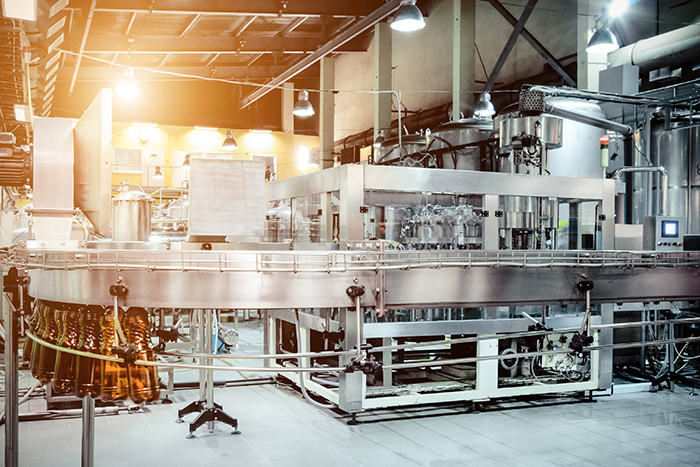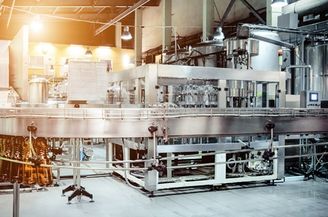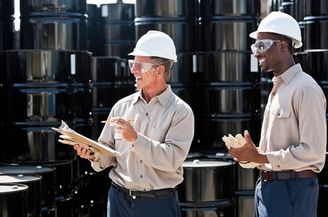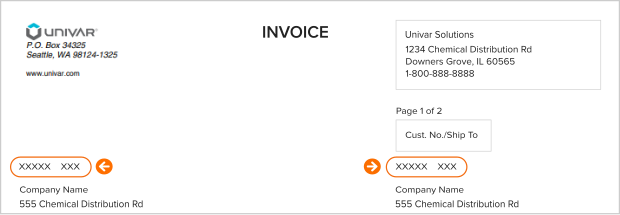We’re here to provide you with more information or help answer any questions you might have. Send us a note and we’ll get back to you as soon as possible.
Why cleaning and sanitation are so important for food and beverage facilities
Cleaning and sanitation are critical processes throughout the food and beverage industry and are ripe for improvement. An effective sanitation program is a key factor to guarantee product quality. Additionally, cleaning and sanitation have an important impact on Public Health. By law, all food and beverage manufacturers and processors must have reliable processes in place to keep their products safe for human consumption. They are usually outlined in Good Manufacturing Practices (GMPs) and Sanitation Standard Operating Procedures (SSOPs).
Cleaning and sanitation are imperative in food safety to protect the processing environment from being inhabited by harmful microorganisms. According to recent data from the Centers for Disease Control and Prevention, about 48 million people in the U.S. (1 in 6) get sick, 128,000 are hospitalized, and 3,000 die each year from foodborne diseases.
For food and beverage facilities, complete sanitation and cleaning are critical to avoid:
- Bacterial growth
- Allergen cross-contamination
- Degraded product integrity
- Failed inspections
A quick breakdown of cleaning and sanitation
The right prescription depends on the composition of food soils and the surface characteristics.
Cleaning
Cleaning is the complete removal of food soil using appropriate detergent chemicals under recommended conditions.
Sanitation
Treatment of a cleaned surface with a chemical or physical agent to destroy disease/spoilage-causing organisms.


The best methods for cleaning and sanitizing
It is important that personnel involved have a working understanding of the nature of the different types of food soil and the chemistry of its removal in order to have an efficient cleaning method. Some standard methods include:
Mechanical Cleaning - often referred to as clean- in-place (CIP), it is not required to disassembly or only partial disassembly.
Clean-out-of-Place (COP) - can be partially disassembled and cleaned in specialized COP pressure tanks.
Manual Cleaning - requires total disassembly for cleaning and inspection.
There are advantages and disadvantages of each of these methods that could improve or hinder your operations. For example, the manual process not only takes significantly more time but also leaves room for errors, wasted resources, and safety concerns.
The automation of a CIP system can provide several benefits to your facility:
- Reduce mistakes – automated cleaning minimizes the chance of human error that can contribute to a contaminated product.
- Improve employee safety – decrease chemical exposure by confining cleaning solutions within the system.
- Increase production time – less time spent on cleaning leads to more time spent on product production.
- Quality assurance – reliability and consistency through automated cleaning with the added benefit of sustainable product quality.
- Cost savings – decrease water and energy usage through repeatable cycle control.
However, every CIP cleaning cycle has its own unique set of parameters, so there’s really no such thing as a typical CIP cycle. There are some common steps in most cleaning cycles, but the elements, sequence, and duration of the cleaning process can vary widely from one system to another. This is why technical assistance can be essential to set up a sanitation procedure.


How MiniBulk can help your business succeed
At Univar Solutions, our trained Cleaning and Sanitation Specialists will perform in-depth site audits to gain a deep understanding of your current operations. We will then compile recommendations and implementations for an efficient sanitation program that best fits your needs.
MiniBulk is a sustainable storage solution designed to enhance productivity and reduce the total cost of ownership:
- By tailoring storage deliveries to your specific needs, we help ensure every pound purchased is used
- By eliminating the need for drum and tote storage, you can free up space and optimize the capacity of your facility
- Most importantly, the switch to MiniBulk will also reduce employee exposure to hazardous materials and ensure safety




